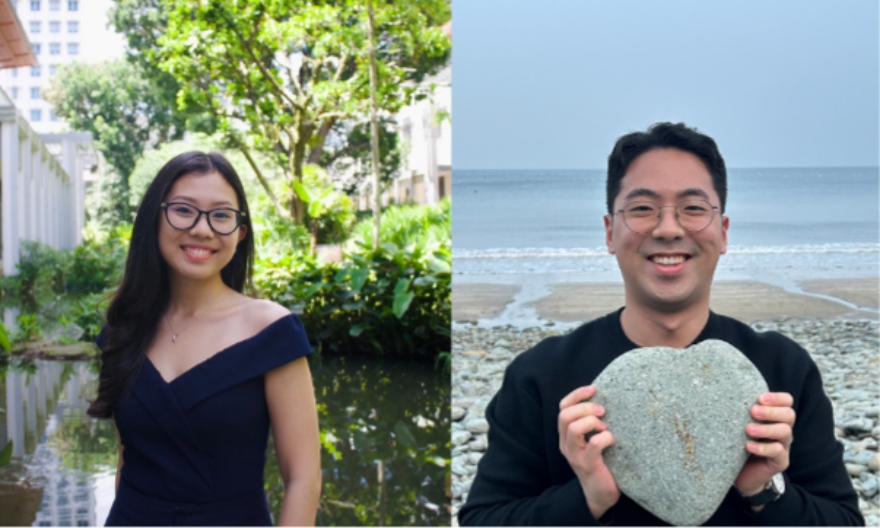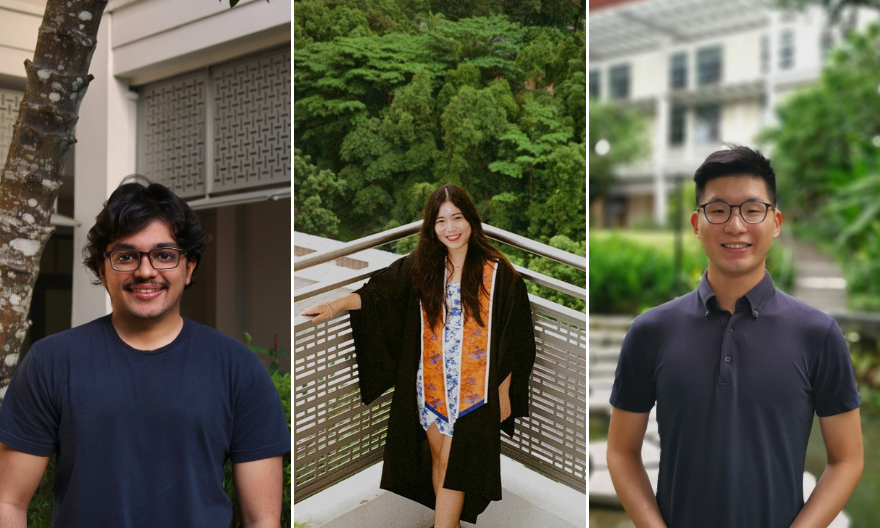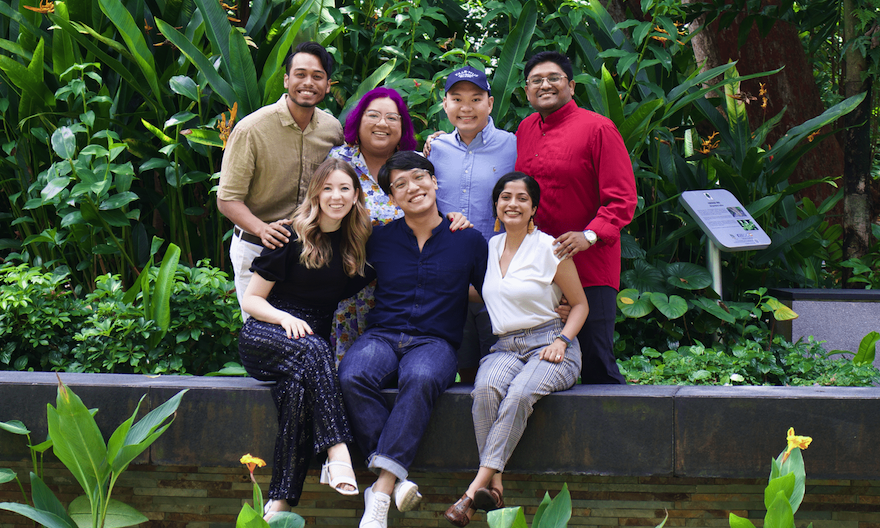One Year Later: Concurrent and Double Degree Programme graduates think and work across boundaries
It has been more than a year since the inaugural class of students from the Yale-NUS College Double Degree Programme (DDP) with Law and various Concurrent Degree Programmes (CDP) graduated. Among them, Ms Amelia Chew and Mr Benjamin Leong (both from the Class of 2018) have been drawing on their experience of interdisciplinary education at Yale-NUS in their work.
A graduate of the DDP with Law, Ms Chew works at Luminance, a United Kingdom-founded company that develops an artificial intelligence (AI) software to help lawyers do their job better and quicker – by identifying anomalies in legal documents, suggesting alternative wording for areas of risk, and streamlining administrative tasks onto a single platform.
As a Legal Product Expert for the Singapore office, Ms Chew works on events across the Asia-Pacific region to share about AI technology, and crafts resources to support the company’s customer base in using the Luminance software. “The Singapore office is tiny,” she said, “so I also end up working on other things, including conducting training sessions for lawyers using our platform.”
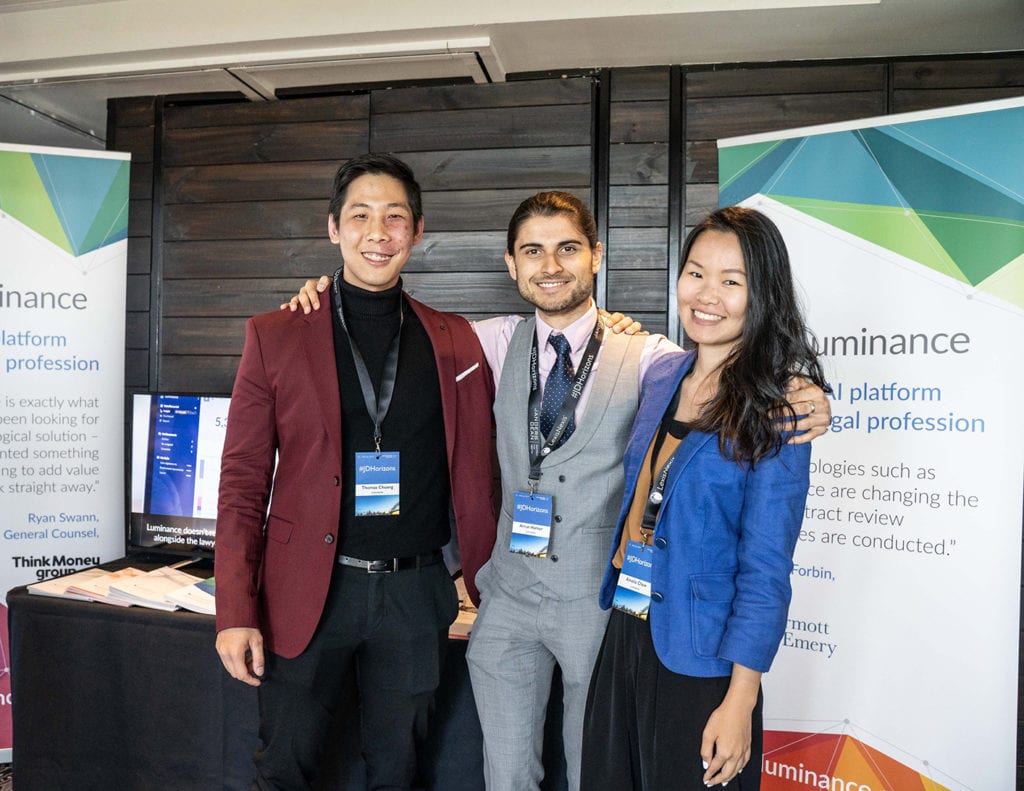 “What’s important is to know why you want to do what you think you want to do.” Image provided by Ms Amelia Chew (right).
“What’s important is to know why you want to do what you think you want to do.” Image provided by Ms Amelia Chew (right).
Ms Chew finds the start-up nature of her workplace environment invigorating. “It’s energising being in an environment that’s very mission-oriented,” she said, “and to be working with colleagues who are passionate about solving the pain points of lawyers by offering something of value.” But the environment can sometimes be challenging as well: “Things change very quickly depending on market opportunities and strategic priorities, and operating in a fast-paced environment does take some getting used to,” she said. Ms Chew credited her Yale-NUS experience for helping her grow comfortable with navigating such uncertainty and ambiguity.
While going into legal practice straight out of law school is perceived as the default path for most law graduates, Ms Chew believes that the changing nature of legal practice means that tech is becoming very central – which makes legal tech an exciting space to be working in. Some law graduates have gone on to pursue careers outside of law firms in fields such as policy, international law, non-profit work and legal tech. “I was keen on pursuing a role in tech, and a role in legal tech was the natural intersection,” she said. “It didn’t matter that the field is perceived as being on the periphery of the legal industry.”
A Philosophy, Politics and Economics (PPE) major and graduate of the inaugural cohort of the CDP with the Lee Kuan Yew School of Public Policy (LKY School), Mr Benjamin Leong (Class of 2018) is now a quantitative research analyst for Blackbox Research, a data-focussed consultancy.
“When I say ‘quantitative’, it means we work with quantitative questions, often with answers that can be easily quantified and aggregated, rather than qualitative data like focus group responses or individual interviews,” he explained. Besides liaising with clients and the operations team, he also ensures that the logistics of the project work out.
According to Mr Leong, the best part of his job was at the intersection of data analysis and storytelling: looking at collected data and thinking about how to tell and present a coherent story. “Thinking of how to slice the data at an angle that no one has done before, and in the process finding out something new – that’s where the magic happens,” he said. “Unfortunately this doesn’t happen to me very often! More often than not, I’m watching my more experienced colleagues come up with such ideas, and I’ll learn from them and try to understand their thought processes.”
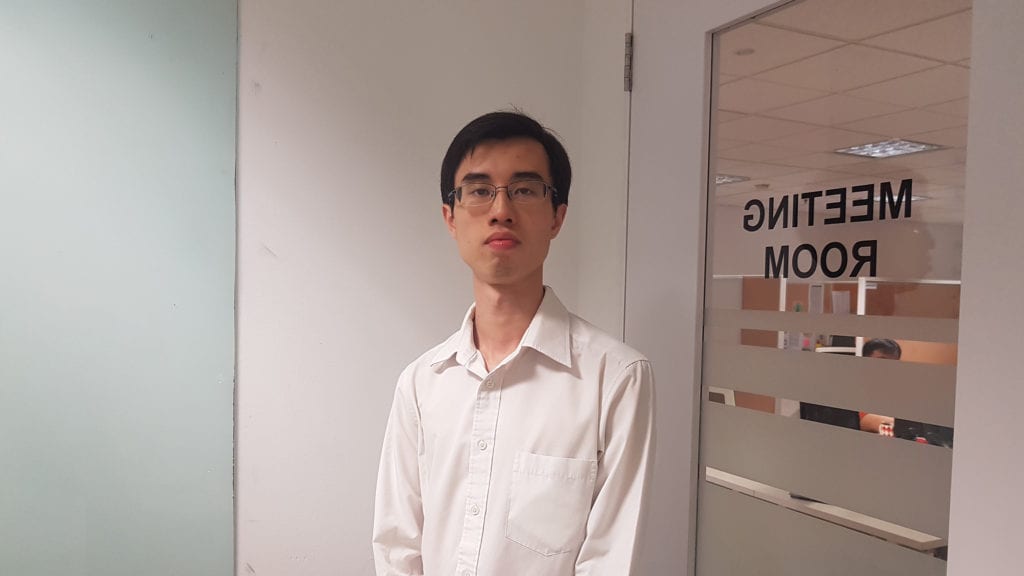 “Having a constructive environment really allows you to ask questions, observe, try, and learn.” Image provided by Mr Benjamin Leong.
“Having a constructive environment really allows you to ask questions, observe, try, and learn.” Image provided by Mr Benjamin Leong.
Mr Leong appreciated that his role allows him to combine working with government policies while simultaneously have private sector exposure. “I already had an interest in research and policy while I was still studying,” he said. “So I appreciate having the opportunity to influence policy and gain an insight into how the government works, while at the same time having the experience of working for a private company.”
Some of his key takeaways from his Yale-NUS education were communication and presentation skills which he can apply to his work. “I remember the things I learned at the Writers’ Centre,” he said, “like determining what priorities others have and what catches their attention.” With these, he could present the data in a manner that was easily understandable.
“It’s just like doing capstone presentations all over again,” he said, laughing.

